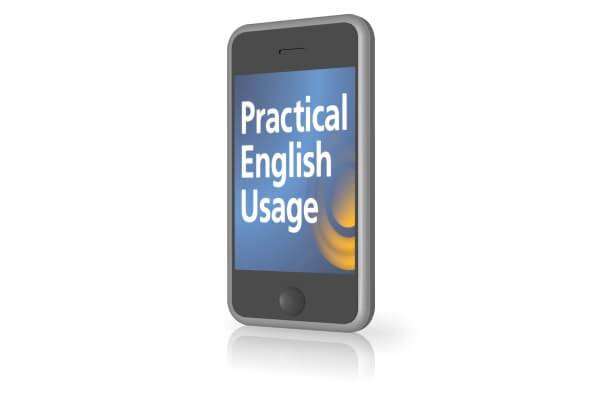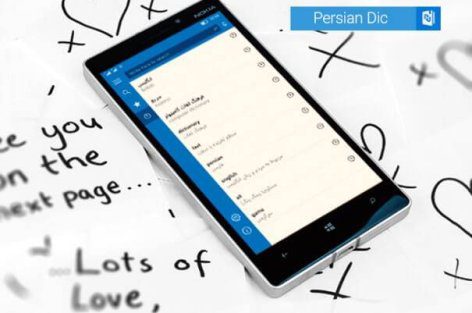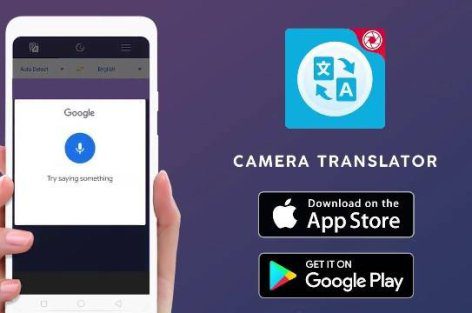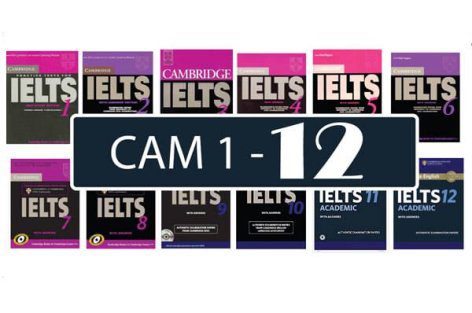
نرم افزار اندروید اشتباهات رایج در زبان انگلیسی Practical English Usage پرفروش ترین نرم افزار آموزش زبان اندروید و یک ابزار مرجع اساسی است که به معلمان و زبان آموزان سطح بالاتر در خصوص حل مشکلات زبانی رایج در زبان انگلیسی کمک می کند. این حالا به عنوان یک برنامه در دسترس است، نگاه کردن به بیش از ۶۰۰ محتوا و مطلب را سریعتر و ساده تر می کند. این نرم افزار توسط انتشارات دانشگاه آکسفورد، معتبر ترین انتشارات زبان انگلیسی جهان و با همکاری گروه نرم افزاری Paragon، یکی از پیشگامان توسعه نرم افزار برای دستگاه های تلفن همراه توسعه یافته است.
نرم افزار اندروید اشتباهات رایج در زبان انگلیسی Practical English Usage به پرسش های مربوط به زبان انگلیسی با زبان های مادری و غیر مادری انگلیسی به صورت فوری پاسخ می دهد: چه زمانی از زمان گذشته با یک مفهوم آینده استفاده کنیم؟ سخنرانان انگلیسی چه وقت و چرا باید از the’ استفاده کنند؟ آیا باید ‘big’, ‘large’, یا ‘great’ را بگویم؟ دقیقا چه تفاوتی بین ‘close’ و ‘shut’ است؟
Practical English Usage Android Application
Over 600 short entries on common problems in English
Entries cover:
– spoken and written grammar, vocabulary, spelling and pronunciation,
– formal and informal language, British-American differences
– Clear simple explanations; examples in natural everyday English
– New revised and updated edition, reorganised into two parts for easier quicker reference:
1. Complete topic-by-topic student’s grammar, with section introductions highlighting common mistakes.
2. Guide to key vocabulary topics, with A–Z list of over 250 common word problems.
Additional background notes on:
• changes in English
• the meaning of ‘correctness’
• standard English and dialect grammar
• other world varieties of English
• style and idiom
• politeness
• avoiding offensive language
and many other matters
When using the app, you can:
• find the information you want quickly through the Index search or the systematic Contents list
• navigate immediately between related entries through the many cross-references
• listen to demonstrations of pronunciation points
• create your own list of favourite entries
• go to ‘History’ to return to recent searches
Free sample entries
When do we use ‘will’, ‘going to’ or present progressive to talk about the future?
Can ‘they’ and ‘them’ have a singular meaning?
Why can’t we say *‘She’s very interested in the nature’*?
When do we use ‘get’ as a passive auxiliary? For example: ‘He got caught.’
The truth about conditionals
When do we use ‘bring’ and when do we use ‘take’?
When do we use ‘can’, ‘could’, ‘may’ or ‘might’ to talk about permission?
How do we read out an email address?
How can we use a question to sound more polite?
When do we use ‘classic’ and when do we use ‘classical’?
How do we use passives like ‘Her sister was given the car’?
Why can’t we say *‘I look forward to hear from you’*?
When do we use ‘do’/’does’/’did’ in questions beginning ‘Who…’? And when not?
 لینگومن | لینگومن | خرید و دانلود کتاب، نرم افزار، فیلم و انیمیشن آموزش زبان
لینگومن | لینگومن | خرید و دانلود کتاب، نرم افزار، فیلم و انیمیشن آموزش زبان


















